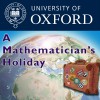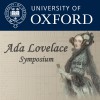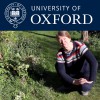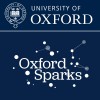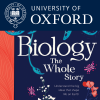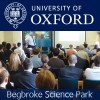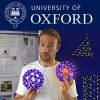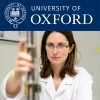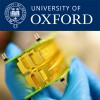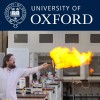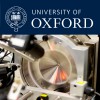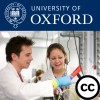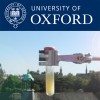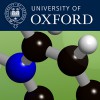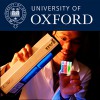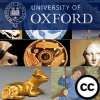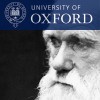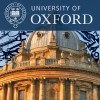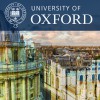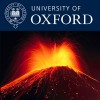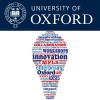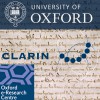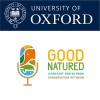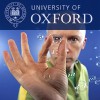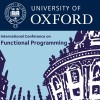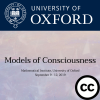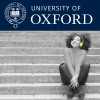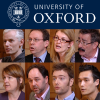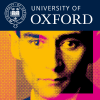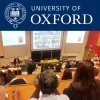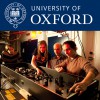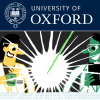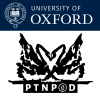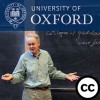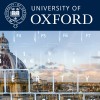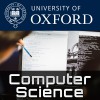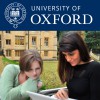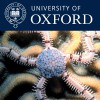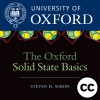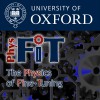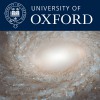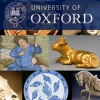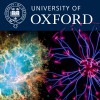Mathematical, Physical and Life Sciences (MPLS)

Relevant Links
The Mathematical, Physical and Life Sciences (MPLS) Division is one of the four academic divisions of the University of Oxford. We have over 6,000 students and research staff, and generate over half of our funding from external research grants.
The MPLS Division's 10 departments and 3 interdisciplinary units span the full spectrum of the mathematical, computational, physical, engineering and life sciences, and undertake both fundamental research and cutting-edge applied work. Our research addresses major societal and technological challenges and is increasingly interdisciplinary in nature. We collaborate closely with colleagues in Oxford across the medical sciences, social sciences and humanities.
Today's scientific research not only crosses traditional subject boundaries, but also transcends national boundaries: MPLS scientists collaborate with researchers from around the world, and play leading roles in many international projects.
Series associated with Mathematical, Physical and Life Sciences (MPLS)
| # | Episode Title | Description | People | Date | |
|---|---|---|---|---|---|
| 1183 | Advances in Garbled Circuits | MT25 Strachey Lecture - Professor Rafail Ostrovsky: Advances in Garbled Circuits | Rafail Ostrovsky | 27 Oct 2025 | |
| 1182 | Will Computers prove theorems? | Kevin Buzzard: Will Computers prove theorems? | Kevin Buzzard | 15 May 2025 | |
| 1181 | Formalizing the Future: Lean’s Impact on Mathematics, Programming, and AI | Leo De Moura: Formalizing the Future: Lean’s Impact on Mathematics, Programming, and AI | Leo De Moura | 15 May 2025 | |
| 1180 | Creative Commons | Nonlinear dynamics of active particles | Dr Rahil Valani provides an introduction to active matter (a field focusing on active particles' nonlinear dynamical behaviors) exploring the active system of superwalking droplets that can exhibit hydrodynamic quantum analogs. | Rahil Valani | 07 May 2025 |
| 1179 | The physics of “flat” electrons | Dr Dumitru Călugăru explores the main strategies for engineering flat band materials, discusses band topology concepts and their relevance to flat band physics, and highlights the role of strong interactions in these materials. | Dumitru Călugăru | 07 May 2025 | |
| 1178 | Creative Commons | How to program a quantum computer | Dr Dominik Hahn explains how a quantum computer is built, discusses how quantum operations are programmed in a way similar to classical computing, and showcases examples of quantum programs running on superconducting devices. | Dominik Hahn | 07 May 2025 |
| 1177 | Privacy, Verification, Robustness: A Cryptographer's perspective on ML | Strachey Lecture: Privacy, Verification, Robustness: A Cryptographer's perspective on ML | Shafi Goldwasser | 11 Mar 2025 | |
| 1176 | Creative Commons | A New Twist on Topology: The Rise of “Moiré Materials” | Prof Sid Parameswaran discusses how quantum condensed matter physics has been revolutionized by “moiré materials”, made by stacking individual atomically thin layers such as graphene with a relative twist/offset between layers. | Siddharth Parameswaran | 21 Feb 2025 |
| 1175 | Creative Commons | Anyons: New Types of Particles in Quantum Physics | While it was originally believed that only bosons and fermions were allowed by quantum mechanics, in fact, when objects are restricted to move on a two-dimensional plane, new types of particles called "anyons" can emerge. | Steve Simon | 21 Feb 2025 |
| 1174 | Creative Commons | Topology in the Physics of Condensed Matter | Prof Shivaji Sondhi explains how topology is applied to understanding properties of condensed matter systems, providing an introduction to topics including defects & solitons, the quantum Hall effect, and topological insulators. | Shivaji Sondhi | 21 Feb 2025 |
| 1173 | From probabilistic bisimulation to representation learning via metrics | Strachey Lecture: From probabilistic bisimulation to representation learning via metrics - Professor Prakash Panangaden | Prakash Panangaden | 02 Dec 2024 | |
| 1172 | The Hubble Tension | Professor Prateek Agrawal discusses the ongoing crisis in cosmology regarding the measurement of the Hubble parameter by two separate probes in this Morning of Theoretical Physics talk from 9th November, 2024 | Prateek Agrawal | 15 Nov 2024 | |
| 1171 | Cosmic strings and gravitational waves from the early Universe | Professor Edward Hardy discusses how the network of cosmic strings that occurs in some theories of the early Universe evolves and emits gravitational waves in this Morning of Theoretical Physics talk from 9th November, 2024. | Edward Hardy | 15 Nov 2024 | |
| 1170 | Monstrosities and Metamorphosis in More-Than-Human Worlds | Metamorphosis is constantly taking place in the worlds of people and other animals. A freewheeling discussion featuring shape-shifting leopard men in Nigeria, gut microbes that shape the human condition, and circus freakshows. | David Pratten, Jamie Lorimer, Beth Greenhough, Eva Bredler | 20 Aug 2024 | |
| 1169 | Extraordinary Bodies, Disability Justice, and Metamorphosis | All of our bodies are gradually undergoing metamorphosis. Yet, many people with extraordinary bodies and minds experience discrimination in everyday life. Our speakers imagine metamorphosis and transformations on a grand societal scale. | Rosemarie Garland-Thomson, Anna Landre, Benedict Ipgrave, Stuart Murray | 12 Aug 2024 | |
| 1168 | Keynote: Time traveling with Gregor Samsa, or what you can do with six legs | Professors Rosemarie Garland-Thomson and Eben Kirksey use Gregor's transformation in 'Metamorphosis' to muse on the everyday changes we all experience and their relations to disability, design justice and ableism. | Rosemarie Garland-Thomson, Eben Kirksey | 07 Aug 2024 | |
| 1167 | The future of Particle Physics | Professor Daniela Bortoletto, Head of Particle Physics at University of Oxford, considers future advancements in particle physics and the ongoing quest to understand the universe's fundamental nature. | Daniela Bortoletto | 30 Jul 2024 | |
| 1166 | Neutrino oscillations | Professor Paul Harrison (University of Warwick) discusses the life and work of Don Perkins, focusing on neutrino oscillations. He reminisces about meeting Perkins in 1994 and the theoretical framework they developed together. | Paul Harrison | 26 Jul 2024 | |
| 1165 | Neutrinos at Soudan and proton decay | Join Professor Mark Thomson on a journey through particle physics from his early days in proton decay experiments to roles in major neutrino projects like MINOS and DUNE, and the profound implications of particle physics research. | Mark Thomson | 26 Jul 2024 | |
| 1164 | Cosmic Rays / Dark Matter | Professor Jocelyn Monroe (Particle Physics, University of Oxford) discusses cosmic rays, dark matter, and the work of Don Perkins, focusing on the tools of particle astrophysics. | Jocelyn Monroe | 26 Jul 2024 | |
| 1163 | CRISPR, Gene Editing, and Metamorphosis | Biotechnology is transforming the human condition. A molecular tool called CRISPR-Cas9 is being used to edit human DNA. Scientists will join influential disabled thinkers to discuss ethical issues hovering around gene editing. | Rosemarie Garland-Thomson, Nada Kubikova, Dagan Wells, Julia-Sophia Bellingrath | 26 Jul 2024 | |
| 1162 | Don Perkins and Neutral Currents | Professor Deiter Haidt, Don Perkin's collaborator on the Gargamelle project at CERN, details the seminal contributions of Don Perkins to neutrino physics and the Standard Model. | Dieter Haidt | 19 Jul 2024 | |
| 1161 | Don Perkins and Charged Currents | Professor Chris Llewelyn-Smith provides a detailed account of Don Perkins' contributions to particle physics, his role as a leading figure, and his impact on the field through his work on neutrino interactions and particle physics. | Chris Llewelyn-Smith | 19 Jul 2024 | |
| 1160 | The early years: Bristol, Emulsions, Pion discovery | Professor Brian Foster (Experimental Physics at University of Oxford) explores the early years of Don Perkins in particle physics, his pion discovery, and his lasting impact on the field and cancer therapy. | Brian Foster | 19 Jul 2024 | |
| 1159 | Hunger Artistry: Kafka and the Art of Starvation | Kafka’s provocative story “The Hunger Artist” explores starvation, art, and the nature of human existence. Experts discuss the story and its reception. | Peter Boxall, Ankhi Mukherjee, Meindert Peters, Karen Leeder | 10 Jul 2024 | |
| 1158 | ‘Franz Kafka’s ‘Metamorphosis’: Insects and Disgust and Repulsion’ | Franz Kafka exploited people’s disgust at insects as his protagonist, Greger Samsa, was transformed into a giant insect. Is this disgust innate, widely shared or justified and what are the consequences for our treatment of insects? | Liam Crowley, Rosemary Gillespie, Clair Linzey, Geraldine Wright | 12 Jun 2024 | |
| 1157 | Tuberculosis: vaccines, diagnostics and experience | Kafka died in 1924 of tuberculosis, which remains one of the world’s deadliest infectious diseases. This talk looks at the various aspects of tuberculosis from candidate vaccines, the role of genetics in TB treatments and the perspective of a patient. | Helen McShane, Philip Fowler | 12 Jun 2024 | |
| 1156 | Oxford Reads Kafka | A collective public reading of 'Metamorphosis' to celebrate the 100-year anniversary of Franz Kafka’s death. Bringing together literary figures, civic leaders and University academics and students, this event celebrates the power of Kafka’s voice today. | Lemn Sissay, Ben Okri, Lisa Appignanesi, Helen McShane | 12 Jun 2024 | |
| 1155 | Chirality in living systems | Prof Alexander Mietke discusses recent findings in this field that have linked chirality in living systems to the formation of a left-right body axis in organisms and to a new kind of elasticity that is found in crystals formed by starfish embryos. | Alexander Mietke | 11 Jun 2024 | |
| 1154 | Imaging living systems | Dr Adrien Hallou presents a new methodology called 'spatial mechano-transcriptomics', which allows the simultaneous measurement of the mechanical and transcriptional states of cells in a multicellular tissue at single cell resolution. | Adrien hallou | 11 Jun 2024 | |
| 1153 | Statistical physics of living systems | Professor Julia Yeomans describes how mechanical models are being extended to incorporate the unique properties of living systems | Julia Yeomans | 11 Jun 2024 | |
| 1152 | 'Kafka's Ape' and 'Words and Music' | Interview with the creatives behind two shows inspired by Kafka's story 'A Report for an Academy' which explore race, migration, ageing and "humanimal" agency. | Ed Gaughan, Karen Leeder, Tony Miyambo, Wes Williams | 07 Jun 2024 | |
| 1151 | Strachey Lecture: The Computer in the Sky | The talk will emphasize the diversity of mathematical tools necessary for understanding blockchain protocols and their applications | Tim Roughgarden | 16 May 2024 | |
| 1150 | The Miracle of Quantum Error Correction | In this talk, Benedikt Placke introduces QEC and explains how the unique interplay between the classical and the quantum world enables us to efficiently correct errors effecting such systems. | Benedikt Placke | 15 Mar 2024 | |
| 1149 | Simulating physics beyond computer power | In this talk Alessio Lerose discusses the seminal idea of simulating Nature via a controllable quantum system rather than a classical computer. He discusses recent advances that brought us closer to the ultimate goal of a universal quantum simulator. | Alessio Lerose | 15 Mar 2024 | |
| 1148 | A liquid of quarks and gluons | Jasmine Brewer covers recent progress on studying the properties of the quark-gluon plasma, and describe how we can capitalize on lessons learned from high-energy physics to provide new insights on this novel material. | Jasmine Brewer | 15 Mar 2024 | |
| 1147 | Strachey Lecture: From classical to non-classical stochastic shortest path problems | Professor Christel Baier delivers the Hillary Term 2024 Strachey Lecture | Christel Baier | 06 Feb 2024 | |
| 1146 | Was there a strategic alternative to the atomic bombing of 1945? | Delve into history with Dr Rob Johnson, Director of The Changing Character of War Centre at Oxford, as he explores a pivotal question. | Rob Johnson | 21 Dec 2023 | |
| 1145 | Oxford Physics and the ‘remote and speculative project’ | A lecture by Prof Stephen Blundell, Professor of Physics – Condensed Matter - (Department of Physics and Mansfield College). | Stephen Blundell | 21 Dec 2023 | |
| 1144 | Nuclear Physics and the development of the bomb | Explore the history of atomic bomb development with Dr. Georg Viehhauser, Particle Physics Research Lecturer at St John's College, Oxford. | Georg Viehhauser | 21 Dec 2023 | |
| 1143 | Ecology - Chapter 10 | Learn the key concepts in ecology and what makes populations change over time, with Professor Lindsay Turnbull from the University of Oxford | Lindsay Turnbull | 01 Dec 2023 | |
| 1142 | Plants - Chapter 9 | Plants are awesome, with photosynthesis being the most disruptive invention ever! Join Professor Lindsay Turnbull from the University of Oxford to understand why | Lindsay Turnbull | 01 Dec 2023 | |
| 1141 | Vertebrates - Chapter 8 | Take a guided tour of the biology and ancestry of the vertebrates with Professor Lindsay Turnbull from the University of Oxford | Lindsay Turnbull | 01 Dec 2023 | |
| 1140 | Animals - Chapter 7 | Take a whistle-stop tour of the Animal Kingdom with Professor Lindsay Turnbull from the University of Oxford | Lindsay Turnbull | 01 Dec 2023 | |
| 1139 | Eukarotyes - Chapter 6 | Explore the mysterious origins of the cells all multicellular organisms are made from - eukaryotic cells - with Professor Lindsay Turnbull from the University of Oxford | Lindsay Turnbull | 01 Dec 2023 | |
| 1138 | Bacteria - Chapter 5 | Learn about the microbiome, the amazing flexibility of bacteria, and why we have an antibiotic resistance crisis with Professor Lindsay Turnbull from the University of Oxford | Lindsey Turnbull | 01 Dec 2023 | |
| 1137 | Energy in Cells - Chapter 4 | Learn how cells generate energy by harnessing chemical reactions, with Professor Lindsay Turnbull from the University of Oxford | Lindsay Turnbull | 01 Dec 2023 | |
| 1136 | Sexual Reproduction - Chapter 3 | Almost all species use sex to reproduce, but biologists struggle to understand why; join Professor Lindsay Turnbull from the University of Oxford as she explains the costs and benefits | Lindsay Turnbull | 01 Dec 2023 | |
| 1135 | Evolution - Chapter 2 | Learn the theory of evolution in a simpler, more intuitive way than ever before with Professor Lindsay Turnbull from the University of Oxford | Lindsay Turnbull | 01 Dec 2023 | |
| 1134 | Information in Cells - Chapter 1 | Learn how cells use the information in DNA and the key components that make up a cell, with Professor Lindsay Turnbull from the University of Oxford | Lindsey Turnbull | 01 Dec 2023 | |
| 1133 | Possible sources for the gravitational wave background | Dr Yonadav Barry Ginat - Possible sources for the gravitational wave background | Yonadav Barry Ginat | 28 Nov 2023 | |
| 1132 | Searching for the origin of black hole mergers in the Universe with gravitational waves | Prof Bence Kocsis - Searching for the origin of black hole mergers in the Universe with gravitational waves | Bence Kocsis | 28 Nov 2023 | |
| 1131 | Gravitational radiation: an overview | Prof Steven Balbus - Gravitational radiation: an overview | Steven Balbus | 28 Nov 2023 | |
| 1130 | Strachey Lecture: How Can Algorithms Help to Protect our Privacy | In this term's Strachey lecture, Professor Monika Henzinger gives an introduction to differential privacy with an emphasis on differential private algorithms that can handle changing input data. | Monika Henzinger | 13 Nov 2023 | |
| 1129 | Strachey Lecture: Use or Be Used - Regaining Control of AI | It’s said that Henry Ford’s customers wanted “a faster horse”. If Henry Ford was selling us artificial intelligence today, what would the customer call for, “a smarter human”? | Neil Lawrence | 04 Sep 2023 | |
| 1128 | How the weird and wonderful properties of magnetised laser plasmas could ignite fusion-energy research | Archie Bott explains how a promising scheme for fusion relies on a novel feature of hot laser-plasmas: introducing a magnetic field of the correct strength alters the plasma’s fundamental properties in a highly counterintuitive yet beneficial manner. | Archie Bott | 02 Jun 2023 | |
| 1127 | Stellarators: twisty tokamaks that could be the future of fusion | Georgia Acton introduces stellarators, discusses the features that distinguish them from tokamaks, highlight the challenges we currently face, and discusses how we might overcome them. | Georgia Acton | 02 Jun 2023 | |
| 1126 | Magnetic confinement fusion: Science that’s hotter than a Kardashian Instagram post | Michael Barnes introduces the basic concepts behind magnetic confinement fusion, he describes why it is so challenging and discusses possibilities for the future. | Michael Barnes | 02 Jun 2023 | |
| 1125 | The spaghettification of stars by supermassive black holes: understanding one of nature’s most extreme events | The spaghettification of stars by supermassive black holes: understanding one of nature’s most extreme events - Andrew Mummery | Andrew Mummery | 03 Mar 2023 | |
| 1124 | Extreme value statistics and the theory of rare events | Extreme value statistics and the theory of rare events - Francesco Mori | Francesco Mori | 03 Mar 2023 | |
| 1123 | Inflation and the Very Early Universe | Inflation and the Very Early Universe - Georges Obied | Georges Obied | 03 Mar 2023 | |
| 1122 | Strachey Lecture: Symmetry and Similarity | An introduction to algorithmic aspects of symmetry and similarity, ranging from the fundamental complexity theoretic "Graph Isomorphism Problem" to applications in optimisation and machine learning | Martin Grohe | 16 Feb 2023 | |
| 1121 | Creative Commons | 6. The shape of data with Professor Heather Harrington | Vicky Neale and Heather Harrington look at how mathematical techniques are used to identify patterns in cancer data, and discuss the creative thinking required of mathematicians. | Vicky Neale, Heather Harrington | 23 Dec 2022 |
| 1120 | Creative Commons | 5. Modelling cancer with Professor Helen Byrne | Vicky Neale sits down with Helen Byrne to discuss her research around mathematical modelling for tumour prediction, and her advice for researchers who want to apply their work to cancer research. | Vicky Neale, Helen Byrne | 23 Dec 2022 |
| 1119 | Creative Commons | 4. Numbers don't tell the whole story with Professor Hannah Fry | Vicky Neale talks to Hannah Fry about the difficulties of using probabilities in medical statistics, and how their own experiences have shaped their perspectives on the tough choices facing those making decisions on cancer care. | Vicky Neale, Hannah Fry | 12 Dec 2022 |
| 1118 | Creative Commons | 3. Medical imaging and radiotherapy with Tom Whyntie | Vicky Neale sits down with Tom Whyntie to look at how mathematics is being used in medical imaging to optimise cancer care, and the ‘epic amounts of data’ behind the technology. | Vicky Neale, Tom Whyntie | 12 Dec 2022 |
| 1117 | Creative Commons | 2. Communicating the evidence with Professor Sir David Spiegelhalter | Vicky Neale and David Spiegelhalter explore the role of statisticians in communicating risk to the public, and how patients can be empowered to engage with clinicians when weighing up the benefits and risks of treatment. | Vicky Neale, David Spiegelhalter | 12 Dec 2022 |
| 1116 | Creative Commons | 1. The relevance of maths to cancer with Professor Philip Maini | Vicky Neale talks to Philip Maini about how mathematical modelling can help researchers and doctors to improve the quality of life for people receiving cancer treatment. | Vicky Neale, Philip Maini | 12 Dec 2022 |
| 1115 | Axion Searches from Black Holes to the Basement | Professor John March-Russell talks about the search possibilities for axions including many current and near future ultra-precise quantum `table top' experiments in the Beecroft basement. | John March-Russell | 01 Dec 2022 | |
| 1114 | Axion Electrodynamics in Solid-State Materials | Professor Siddharth Parameswaran gives the second talk on Axions. | Siddharth Parameswaran | 01 Dec 2022 | |
| 1113 | The Axion: How Angles Become Particles | Professor Joseph Conlon introduces the general idea of axions: particles associated to fields which are valued on a circle rather than a real line. | Joseph Conlon | 01 Dec 2022 | |
| 1112 | Strachey Lecture: Integrating Logic, Probability and Neuro-Symbolic Reasoning using Probabilistic Soft Logic | An overview of work on probabilistic soft logic (PSL), an SRL framework for large-scale collective, probabilistic reasoning in relational domains and a description of recent work which integrates neural and symbolic (NeSy) reasoning. | Lise Getoor | 27 Oct 2022 | |
| 1111 | That's a Wrap! | Resilience, cool communicators and space robots. This episode wraps a brilliant season of PTNPod, with Ari and Claudine's favourite 5 moments. | Arianna Schuler Scott, Claudine Tinsman | 11 Jul 2022 | |
| 1110 | Value & Benefits | SPECIAL CONFERENCE EPISODE getting the inside scoop on UK Cyber Strategy. | Arianna Schuler Scott, Chris Ensor, Bernard Parsons, Harmonie Toros | 04 Jul 2022 | |
| 1109 | Relevant & Useful | We discuss communication challenges and pipeline problems in cyber security. | Arianna Schuler Scott, Claudine Tinsman, Andrew Martin, Louise Axon | 27 Jun 2022 | |
| 1108 | Raising the Bar | Surprising social media harms and the Online Safety Bill. This week we're talking about Claudine's research into long term harms of social media content and managing the 'mundane'. | Arianna Schuler Scott, Claudine Tinsman | 24 Jun 2022 | |
| 1107 | Creative Commons | A Theory of Weak-Supervision and Zero-Shot Learning | A lecture exploring alternatives to using labeled training data. | Eli Upfal | 09 Jun 2022 |
| 1106 | Power to the Ppl | Data protection and making consent more of a conversation. Listen up, and prosper! | Arianna Schuler Scott, Claudine Tinsman | 09 Jun 2022 | |
| 1105 | Creative Commons | Voice Hackers R Us | We’re learning about speech interfaces and hacking home assistants with nonsense and wordplay. | Arianna Schuler Scott, Claudine Tinsman, Mary Bispham | 28 May 2022 |
| 1104 | Creative Commons | We are what we do | Instead of passwords, what if computers used our high fives to log us in? | Arianna Schuler Scott, Claudine Tinsman, Klaudia Krawiecka | 22 May 2022 |
| 1103 | Creative Commons | Make or Break | Join us as we explore how to describe trust, reputation and messiness using maths! | Arianna Schuler Scott, Claudine Tinsman, Sean Sirur | 16 May 2022 |
| 1102 | Creative Commons | Rethinking Risk | Sometimes threats come from inside the system (content warning: intimate partner violence). | Arianna Schuler Scott, Claudine Tinsman, Julia Slupska | 10 May 2022 |
| 1101 | Creative Commons | The Kids aren’t OK | Designing and building apps to protect children and young folk from data harms. | Arianna Schuler Scott, Claudine Tinsman, Anirudh Ekambaranathan | 20 Apr 2022 |
| 1100 | Creative Commons | Technospheres | Political influence and the trading power of surveillance and censorship technologies. | Arianna Schuler Scott, Claudine Tinsman, Valentin Weber | 20 Apr 2022 |
| 1099 | Creative Commons | Networks of Hate | Exploring how hate groups use, lose and abuse social media networks. | Arianna Schuler Scott, Claudine Tinsman, Fatima Zahrah | 20 Apr 2022 |
| 1098 | Creative Commons | Intro | Welcome to Proving the Negative, a podcast exploring the wide wonderful world of cyber security research. | Arianna Schuler Scott, Claudine Tinsman | 20 Apr 2022 |
| 1097 | Creative Commons | Victims of Algorithmic Violence: An Introduction to AI Ethics and Human-AI Interaction | A high-level overview of key areas of AI ethics and not-ethics, exploring the challenges of algorithmic decision-making, kinds of bias, and interpretability, linking these issues to problems of human-system interaction. | Max Van Kleek | 06 Apr 2022 |
| 1096 | Creative Commons | The practicalities of academic research ethics - how to get things done | A brief introduction to various legal and procedural ethical concepts and their applications within and beyond academia. | Katherine Fletcher | 05 Apr 2022 |
| 1095 | Creative Commons | Statistics, ethical and unethical: Some historical vignettes | David Steinsaltz gives a lecture on the ethical issues in statistics using historical examples. | David Steinsaltz | 05 Apr 2022 |
| 1094 | Creative Commons | Joining Bayesian submodels with Markov melding | This seminar explains and illustrates the approach of Markov melding for joint analysis. | Robert Goudie | 05 Apr 2022 |
| 1093 | Creative Commons | Neural Networks and Deep Kernel Shaping | Rapid training of deep neural networks without skip connections or normalization layers using Deep Kernel Shaping. | James Martens | 05 Apr 2022 |
| 1092 | Creative Commons | Introduction to Advanced Research Computing at Oxford | Andy Gittings and Dai Jenkins, deliver a graduate lecture on Advance Research Computing (ARC). | Andy Gittings, Dai Jenkins | 05 Apr 2022 |
| 1091 | Creative Commons | Ethics from the perspective of an applied statistician | Professor Denise Lievesley discusses ethical issues and codes of conduct relevant to applied statisticians. | Denise Lievesley | 31 Mar 2022 |
| 1090 | Creative Commons | A Day in the Life of a Statistics Consultant | Maria Christodoulou and Mariagrazia Zottoli share what a standard day is like for a statistics consultant. | Maria Christodoulou, Mariagrazia Zottoli | 31 Mar 2022 |
| 1089 | Creative Commons | Metropolis Adjusted Langevin Trajectories: a robust alternative to Hamiltonian Monte-Carlo | Lionel Riou-Durand gives a talk on sampling methods. | Lionel Riou-Durand | 31 Mar 2022 |
| 1088 | Modelling infectious diseases: what can branching processes tell us? | Professor Samir Bhatt gives a talk on the mathematics underpinning infectious disease models. | Samir Bhatt | 31 Mar 2022 | |
| 1087 | Strachey Lecture: How Are New Technologies Changing What We See? | There has been a proliferation of technological developments in the last few years that are beginning to improve how we perceive, attend to, notice, analyse and remember events, people, data and other information. | Yvonne Rogers | 16 Mar 2022 | |
| 1086 | Rock'n'roll for wolves with Jen GaNun | In this final episode for Season 2, Julia and Sofia talk to dancer, choreographer and singer Jen Ganun about leveraging the power of rock and roll for wolf conservation in Colorado. | Julia Migne, Sofia Castello y Tickell, Jen GaNun | 10 Mar 2022 | |
| 1085 | Exploring the treetops with Tim Kovar | In this episode, Julia and Sofia talk to tree climber Tim Kovar about trees, inclusivity and connecting people with nature. | Tim Kovar, Sofia Castello y Tickell, Julia Migne | 17 Jan 2022 | |
| 1084 | Strachey Lecture: Mixed Signals | Mixed Signals: audio and wearable data analysis for health diagnostics | Cecilia Mascolo | 06 Jan 2022 |
- 1 of 12
- next ›

